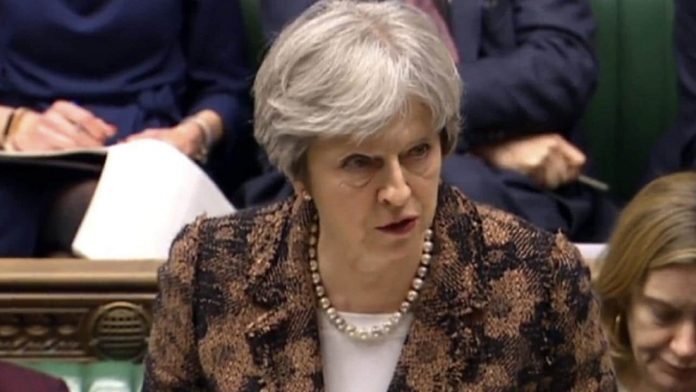
Prime Minister Theresa May’s Brexit deal has been rejected by 230 votes – the largest defeat for a sitting government in history.
MPs voted by 432 votes to 202 to reject the deal, which sets out the terms of Britain’s exit from the EU on 29 March.
Labour leader Jeremy Corbyn has now tabled a vote of no confidence in the government, which could trigger a general election.
The confidence vote is expected to be held at about 1300 GMT on Wednesday.
Mr Corbyn said it would allow the House of Commons to “give its verdict on the sheer incompetence of this government”.
The DUP’s Brexit spokesman Sammy Wilson said his party would be supporting Mrs May in Wednesday’s confidence vote.
He said: “We want to see the Conservative government continuing to deliver on Brexit.
“We never wanted a change of government, we wanted a change of policy back to what the prime minister promised in the manifesto she stood on, and the promises she made in subsequent speeches.”
If MPs vote to back a no confidence motion, the government, or anyone else who can command a majority, would get 14 days to win a further confidence vote. If they can’t win that, a general election will be then held.
Some 118 Conservative MPs voted with the opposition parties against Mrs May’s deal.
In normal times, such a crushing defeat on a key piece of government legislation would be expected to be followed by a prime ministerial resignation.
But Mrs May signalled her intention to carry on in a statement immediately after the vote.
“The House has spoken and this government will listen,” she told MPs.
She offered cross-party talks to determine a way forward on Brexit, if she succeeded in winning a confidence vote.
Former foreign secretary and leading Brexiteer Boris Johnson said it was a “bigger defeat than people have been expecting” – and it meant Mrs May’s deal was now “dead”.
But he said it gave the prime minister a “massive mandate to go back to Brussels” to negotiate a better deal, without the controversial Northern Ireland backstop.
And he said he would back Mrs May in Wednesday’s confidence vote.
In her statement to MPs, Mrs May said she planned to return to the Commons next Monday with an alternative plan – if she survives the confidence vote.
She said she would explore any ideas from cross-party talks with the EU, but she remained committed to delivering on the result of the 2016 referendum.
President of the European Council, Donald Tusk, said he regretted the outcome of the vote and urged the UK government to “clarify its intentions with respect to its next steps as soon as possible”.
Source: BBC
